The Man Who Bought Buell: Bruce Belfer
We sit down for a chat with the new owner of EBR
Three days ago we broke the story that Erik Buell Racing had been bought here. Over the weekend, our Asbury Park correspondent sat down with its new owner for this exclusive interview.
_____________________________________________________________________
To know where Bruce Belfer is coming from, you have to know where he is actually from. I do, ’cause it’s where, and when, I’m from. That would be the greater Asbury Park area of the Jersey Shore. Jack Nicholson is from here. So is Danny DeVito. Throw in Springsteen, and I would take a night on the town with these locals versus virtually anyone else on the planet.
In the ’70s and early ’80s, as The Boss wrote in “Born to Run,” Hemi- powered drones screamed down the boulevard. Asbury was American Graffiti writ large, and ‘The Circuit’ was the epicenter, with a beach, boardwalk, bikes, hot cars, hotter chicks, and rowdy bars with some of the greatest bands and musicians ever concentrated in one square mile. I was there almost every night, and so was a young Bruce Belfer (there’s a somewhat dated history of The Circuit here).
Belfer cut his teeth as a security guard at the infamous Mrs. Jay’s bar, the Asbury Park biker hangout pictured above. (Correction from Bruce: “Mrs. Jay’s was a short term gig for me. I’m better known at the Stone Pony and the Fast Lane. Already catching shit from the local Asbury Music Mafia.”) He embodies a certain Jersey archetype; no-BS, loyal, guarded, probably much stronger and smarter than you, and with a mischievous sense of humor. He is a successful businessman, an accomplished engineer, an ex-bouncer, and a dedicated biker. He’s still around his hometown. And he’s about to own an iconic American motorcycle brand. We managed to squeeze ourselves in for a quick talk over the weekend about the future of Erik Buell Racing.
Andrew Capone for MO: So, Bruce, how about a little background? You grew up in Jersey, what else?
Bruce Belfer: Mine’s the typical Jersey shore background; there’s the beach, there’s music, there’s motorcycles, there’s life.
MO: And you’ve been in the security business, you’re an engineer.
BB: I am a mechanical engineer.
MO: And you’ve been in that field a long time, as well as being a motorcycle guy. Being an enthusiast is one thing, but really getting into the business, the actual manufacturing, marketing and distribution of motorcycles is a big step. Tell us about the pathway to EBR.
BB: The long version of that story is I’ve been making metal into money since 1979. As a manufacturer of [commercial lighting] products, there are some common threads that run through that business that are similar. Once you’ve mastered manufacturing, there are a lot of common elements. My road to here is a lifetime passion for motorcycling, and a lifetime passion for manufacturing.
I originally tried to reach out to Erik Buell when the Harley situation came apart for him, and was unable to reach him. Being a lifetime fan I think is the right word, of him and his innovative ingenuity as applied to motorcycles and particularly chassis dynamics… I’m just a reader and follower of what’s he’s done and how he does it.
When this came up I reached out and got him the day after the announcement was made that EBR was shutting down, and shortly thereafter got in contact with the receiver’s representatives. Those gentlemen steered me through the process of what the nature of EBR was prior to the close, and what the structure would be, or could be, after the close. Then I spent four months of some very heavy due diligence, to wrap my mind around what was available to be bought.
And what I saw was a highly competent, technical company with an immense and very deep talent pool, which had been distracted from its primary business of manufacturing motorcycles, and had become a consulting arm to a company, in my opinion, that did not focus its energies well. So what was missing from the equation was service to the customer base, in the form of parts and warranty service and new models. At base, the core business was being ignored at the direction of the big-money parent company.
MO: You’re talking Hero?
BB: That’s correct. I’ve got nothing bad to say about Hero, they did what they did and frankly, they dropped this opportunity in my lap. As long as we part on amicable terms, I have no issue with them.
MO: The fork in the road is that Hero goes back, does what they’re doing. You’re going to take EBR in the direction you want to take it in, with whatever assets come along. So there’s EB and there’s R. You’ve got a very strong presence in Erik Buell and everything he means to this industry and company, the fact that they’ve made some very interesting race bikes in addition to that mantle of American sporting performance. How do you see all that working out moving forward?
BB: As I said, EBR has a super-deep talent pool and a very rich community of exceptional engineers. I’m not one for speaking in hyperbole, but this is a fact: These guys are core. They’re not fooling around, they ride what they build. And that particular talent pool understands chassis dynamics probably better than anyone else in the business. Even when the components they’ve had to work with weren’t the best, and even when they didn’t have the most horsepower, they’ve always built the best-handling, easiest bikes to ride fast. To me, you can’t really separate the EB from the R. They’ve cut their teeth in racing. Having said that, applying those skill sets to a broader range of products makes a lot of sense to me.
As I look over the future and what potentially is a good market for EBR, we have to hold onto the Erik Buell Racing definition of EBR, and we have to expand it to Engineered By Riders; that’s what this company produces, and we have to make more of them available to people who ride.
MO: The “consulting” word is in there. It’s interesting, I’m a fan of Lotus cars and have been forever. There’s always been an angle with companies with that kind of engineering expertise that also consult; Porsche does it, Lotus does it… in the British Midlands there’re dozens of companies, Cosworth, et cetera. Do you see an angle there? Will you focus intensely on the brand EBR and what that means to American enthusiasts, or are there opportunities given the engineering talent to insert yourself on a wider level?
“America needs another cruiser manufacturer
like it needs a hole in its head.”
BB: The short answer is we’re going to focus on riders and bikes for riders. This is still a small company, there are challenges ahead for us, and the one thing we can’t afford to do is lose focus. The focus we need to maintain is on our customer base, the rider base, the dealer base… the people who rely on EBR for their favorite pleasure, for their, uh, for their rush. That’s your core. First things first, you need to step up and be there for your core. And you have to introduce products that are relevant to the core, and expand the core to people in the next zip code.
I’ve already been asked a million times, `Hey, are you gonna build cruisers? Choppers?’ Uh, no. America needs another cruiser manufacturer like it needs a hole in its head. You’ve got Harley-Davidson, which rightfully owns that business and does it better than anybody else on the planet, you got Victory, Indian… those guys, that’s where they live. So, no, we’re not going to go that route. We’re going to stick to what we do best in the markets where we do best with the clients who love us best, and we’re going to do right by them. That’s the focus. If we can get that done, everything else will fall into place behind it.
MO: Have you had any feedback from dealers? How will you manage, or maybe repair, the dealer relationship?
BB: The dealer base is rightly upset about the situation. Here you are committed to a brand and the brand has to close its doors. That’s a very jarring and in some cases frightening situation for a dealer to be in. Our first order of business at EBR is to reconnect with our dealerships to figure out who’s still on board; there may be some attrition, it wouldn’t surprise me — but I’m hoping it will be minimal, and that the best players stay in the game. I can’t speak for them.
I can speak to what we’re going to do, and we’re going to do right by our dealers. And we’re going to do right by our clients. The first thing we have to do is step up.
Top Ten Erik Buell Ups & Downs So Far…
MO: You’ve come to this from a very different angle. You’ve got a strong personality, you’re entering into all sorts of partnerships, it’s a global business, an American brand… you’ve got dealers, suppliers, now the press to deal with. Have you thought about how it’s all going to work, an organization, do you have those human assets in place? Will that come from EBR, or will you build a Jersey coalition?
BB: The short answer to that is I’m going to deal with them the way I’m dealing with you: I’m going to be me, I’m going to say what I mean and mean what I say, and I’m going to do what I said I was going to do. That’s the first order of business for anything I’m involved with. Building an organization is a lot easier when you already have some of the players on the team. EBR is not without some of those human resources, although some of those resources have found other work. We’ll need to rebuild some of it, and I’ll be the first to admit I’m not used to being this much of a, I hesitate to say “public figure,” but I was also not used to buying a company out of Chapter 128 in Wisconsin — but I’m a quick learner and I’ll figure it out, just like I figured that out.
MO: Is EBR going to stay where it is? Will you bring some of it to New Jersey? Can you do it yourself? Will you need to bring in other people for financial partnerships?
BB: You’re sitting in this building. It’s 100,000 square feet on 27 acres; if you think I did this all by myself, you’re crazy. I have been surrounded, and surrounded myself with, people who make me look like a genius since I got started in business. And although I’m the one that generally is responsible for everything good and bad, that’s just being the boss. My job here is to assemble the best people so they can make good decisions and execute those decisions. If I make a bad decision, it’ll punch me in the mouth fast enough for me to change the decision. But you‘ve got to make decisions, and you’ve got to take action. If you don’t do those two things, it doesn’t matter what else you do.
MO: What’s your take on the product? Aside from that you’re a fan of EBR motorcycles and their really interesting niche and all the attributes we talked about. Do you have plans for the current range of models? Are you germinating ideas now about what’s next as far as improving them, supplementing, replacing?
BB: Yes. I know exactly what I want to do. I know I have a team of people who know how to do exactly what I want to do. I also know, and have been overwhelmed by the response of the ridership; they know what they want. So our job here is to find the intersection between what we want to do and what our customers want from us. Find that intersection and deliver there.
“I will not sacrifice the core business for a racing program.”
MO: How about the R side, the racing side? I got to know Mark Miller and Brandon Cretu last year, two riders with the best sounding bikes on the Isle of Man TT course. Huge positive vibe for American riders and American bikes there, even post-bankruptcy, Splitlath and some of the other folks are still supporting EBR. Will that get back up to speed quickly?
BB: Splitlath has been in contact with me on a number of occasions since the announcement was made. That looks like a tremendous organization, very well-oiled, and I look forward to meeting them personally and continuing with them. I can tell you this: A racing program is one of the most expensive things a company can undertake, and I will not sacrifice the core business for a racing program. What I will do is support racing programs until such time as it makes economic sense and does not cost my riders, my core customers, any aspect of their relationship with EBR.
MO: The road to hell is paved with companies who overreached by racing, but it’s a huge part of EBR’s brand.
BB: It is a huge part of the brand. But for me it has to be about business. For EBR and its employees, it has to be about business. If you spend all your time at the track, and you can’t pay the rent… first order of business is to pay the rent and service the core, the riders. To reward the faithful, that’s what’s got to happen first.
MO: Do you have a timeline to cycle back in? You’ve got the AIMExpo in October, EICMA. Will you try to cycle up for the 2016 season?
BB: We will accelerate into that timeframe based upon what we can deliver. We’re not going to promise what we can’t deliver or put prototypes out for display without the ability for people to buy them. The fastest way to make business for your competition is to put a good idea out there and not be able to deliver it. We’ll be providing a glimpse into the future, but we will not make promises we can’t keep.
MO: So you have some breathing room. You feel confident moving into this business and this industry?
BB: Confident? I’m the most confident motherfucker you ever met in your life.
“The only way for this country to return to its glory
is to make things.”
MO: What else for your Motorcycle.com fans?
BB: To the extent that the readers of Motorcycle.com are aware of what’s at least going on here in the U.S., I’m a huge proponent of American manufacturing, and I feel very strongly that the only way for this country to return to its glory is to make things. Making things allows a country and a society all the luxuries and benefits it wants. That’s how countries, nations, build value. And if you want to see a country building value, take a look at Shanghai 10 years ago and Shanghai today. They did that with American money, because we keep buying stuff from them.
The only way for the U.S. to get back on its feet – and you can listen to politicians till you’re blue in the face – the only way it’s going to happen is by being productive. And EBR is a way for me to continue to be productive. It’s also an opportunity for the employees of EBR to continue being productive, and for the vendors of EBR. And that, to me, is the best possible use of my time. That’s what I love to do: to think about something, to develop something, and to make that something. Here’s my chance.
The last point I’d like to make is about Erik Buell the man. It’s one thing to know a person from their work and from what’s written about them, the interviews they give. It’s another thing entirely to meet and spend time with them, and to begin to understand that person. What needs to be said about Erik Buell is, here’s a man who is so immensely talented as an engineer and as a rider — with an intuitive sense of what’s necessary to make a phenomenal machine work.
He’s never had anybody watching his back. Harley-Davidson owned him. Hero owned him. I’m not the man who owns him. Erik Buell owns Erik Buell, and I’m here to watch his back so that he can do what he does best, which is to design the best motorcycles on this planet. I’m here to make sure he can do that without having to worry about all the ins and outs of business; that’s what I’m here for. And I think that’s going to make for a very powerful partnership going forward.
AC: Greetings from Asbury Park, folks. This is going to be fun.
More by Andrew Capone



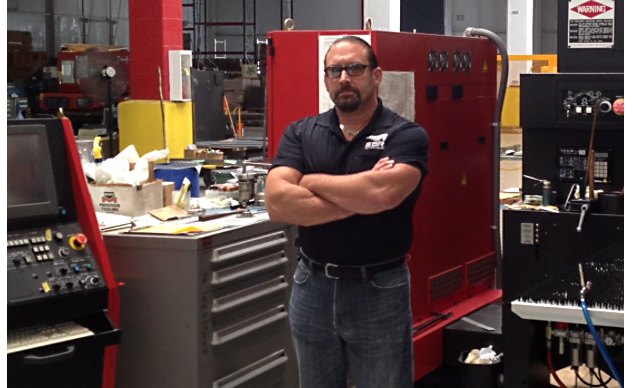
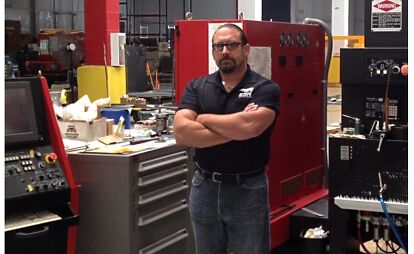









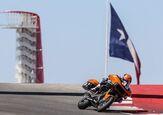
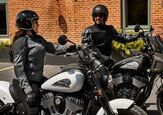
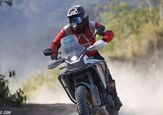
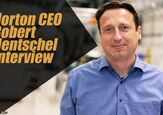
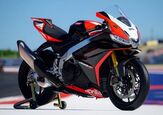
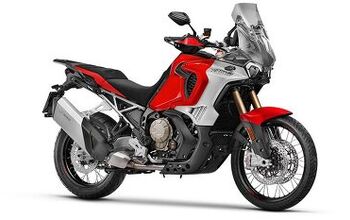
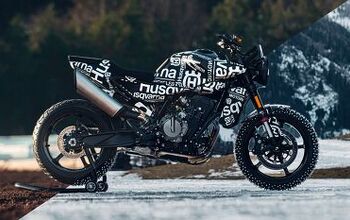
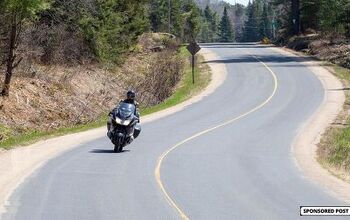
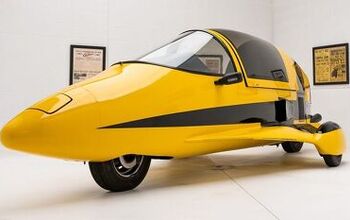
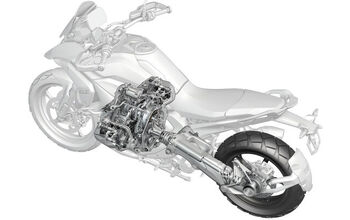
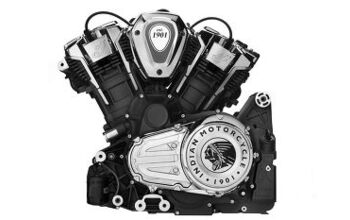
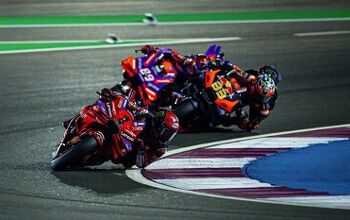


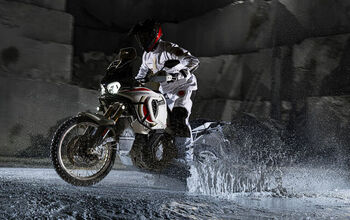
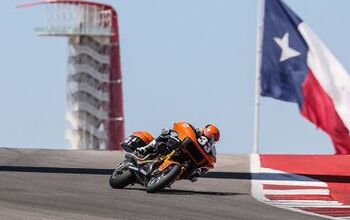
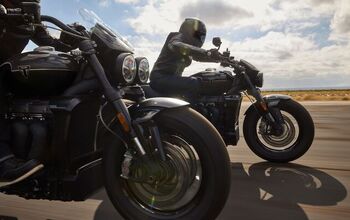
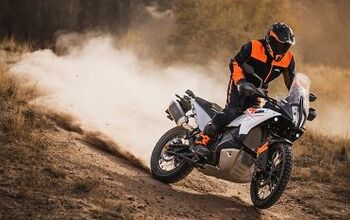
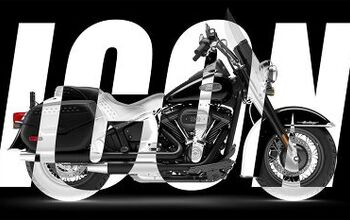

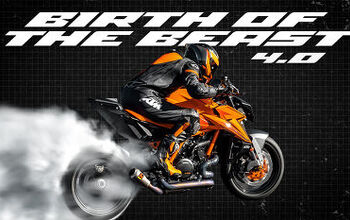
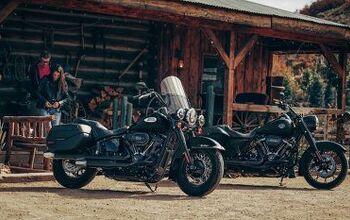

Comments
Join the conversation
So the question is, why is the guy who just paid several million for EBR's assets working as a security guard at a country music festival in upstate NY? And yes, it's the same guy. http://www.dailyfreeman.com...
The financialization of the American economy
American De-Industrialization
Continues Unabated
American real economy collapse.
America's economic elite has long argued that the country does not need an industrial base. The economies in states such as California and Michigan that have lost their industrial base, however, belie that claim. Without an industrial base, an increase in consumer spending, which pulled the country out of past recessions, will not put Americans back to work. Without an industrial base, the nation's trade deficit will continue to grow. Without an industrial base, stranded in low-paying service-sector jobs. Without an industrial base, the United States will be increasingly dependent on foreign manufacturers.